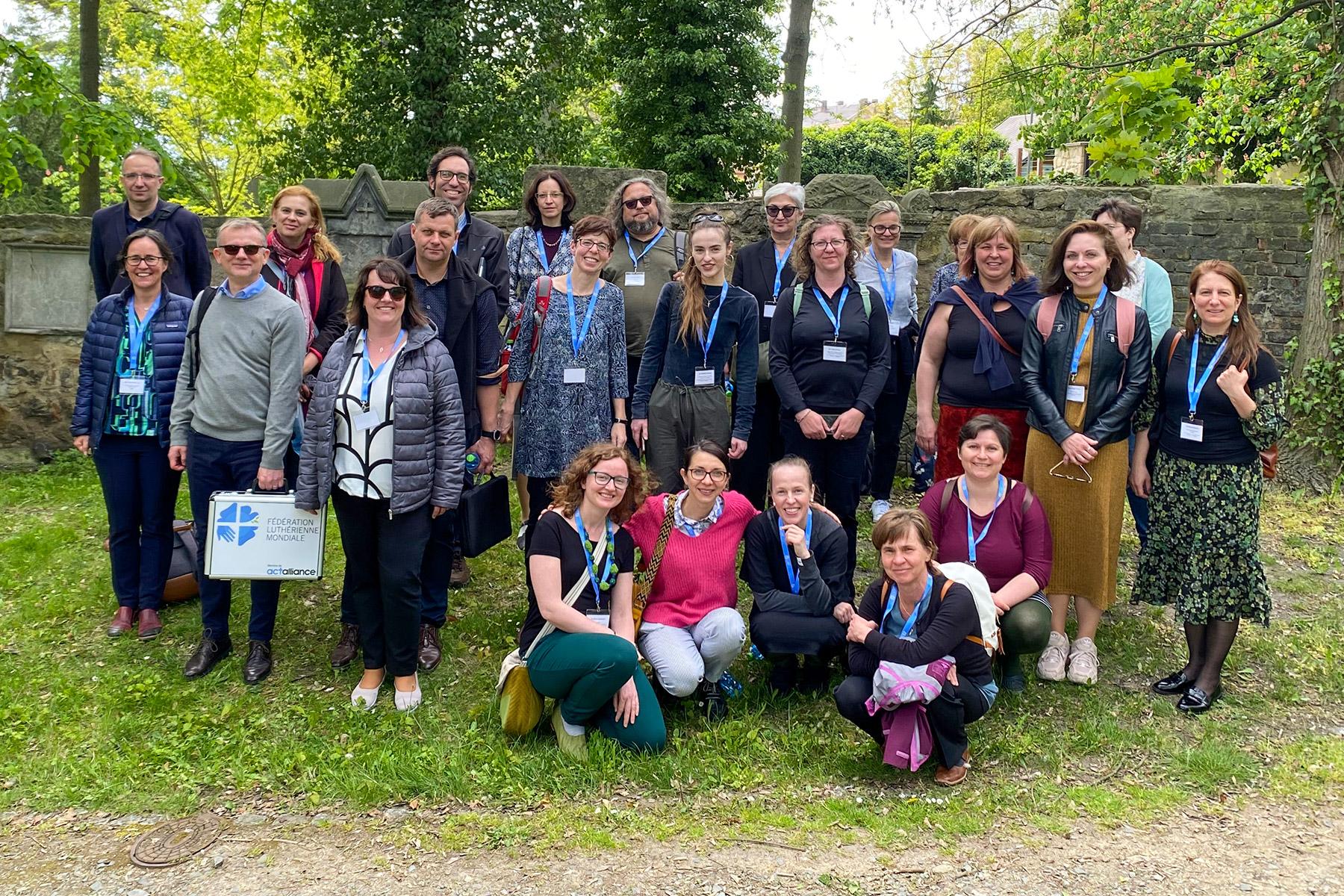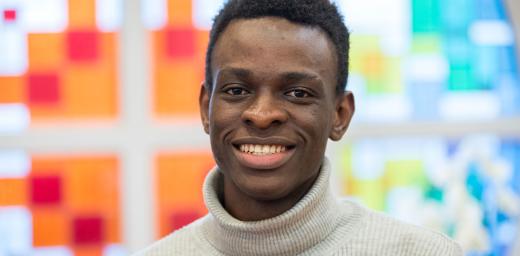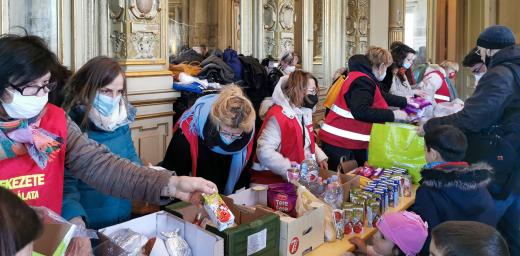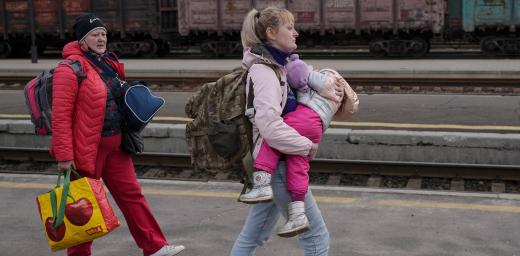LWF consultation for counselors working with Ukrainian refugees
(LWI) – “He restores my soul” - a phrase taken from Psalm 23 - was the title of a consultation The Lutheran World Federation (LWF) conducted for persons caring for refugees from Ukraine.
The consultation was held in Prague, Czech Republic, from 9 to 11 May and was hosted by the Evangelical Church of Czech Brethren. Two areas of work were in focus: psychosocial methods and strategies to care for those affected by a crisis or trauma, and self-care for staff assisting these people after their own stressful experiences in this work.
Participants mainly came from LWF member churches in Eastern European countries bordering on Ukraine that have received refugees from that armed conflict. Eighteen pastors, staff, and volunteers met to exchange experiences and receive practical and theoretical input. Joint morning and evening prayers provided the spiritual framework for the consultation.
Many participants had worked very hard throughout the last 14 months to provide housing, food, jobs, administrative help, and psychological and spiritual support to Ukrainian refugees. The experiences they have had in the process are manifold. For example, a pastor from the Czech Republic shared that he became the temporary legal guardian of a Ukrainian teenage boy.
Changed needs following changed circumstances
With so much work taking place, those involved tend to become fatigued trying to keep up the commitment to support those who have experienced the trauma of fleeing from war and the challenges of settling in a new country.
In view of the current political situation and the ongoing conflict, refugees have needed more than initial material help. This has placed new demands on those supporting them, said Rev. Rivka Schunk, research assistant in LWF’s Department for Theology, Mission and Justice, who coordinated the consultation.
“The new reality means that refugees need to find jobs and ways to sustain themselves in the new surroundings. Also, support by church staff cannot be maintained at the initial levels and must take a new shape,” Schunk explained. While initially, material help was needed in the form of food, clothing and accommodation, needs have now shifted to spiritual and psychosocial needs. “We wanted to show participants that the work done in local church congregations and the spiritual care generally provided can be very helpful under these circumstances.”
Nevertheless, it is helpful to acquire some methods and strategies for dealing with traumatized people and refugees, and to develop a certain sensitivity for this topic, Schunk said.
Those practical tools were presented by Ekateryna Rebrova, one of the speakers of the consultation. Rebrova is a Ukrainian psychologist who fled to Germany with her son. Currently, she lives in Regensburg and works with war-traumatized people through Malteser International. She taught participants some psychological first-aid skills and introduced them to therapeutic approaches.
Self-care is required for long-term engagement
Taking up aspects of self-care in the demanding work with refugees and traumatized people was the second speaker, Rev. Christine Gühne. She is theological advisor at Brot für die Welt, Germany, and wrote a book on the potential of religion and spirituality for development work. She emphasized that people need to feel accepted by and trust in God in order to give to others.
“I appreciated the idea that being brothers and sisters in Christ, does not mean we always have to live in harmony,” said Joanna Wójcik, a participant who coordinates the refugee work in a local congregation of the Evangelical Church of the Augsburg Confession in Poland. “It makes the struggles I also experience in my work easier to accept.
“This consultation helped me realize how important it is to share the burden accumulated in our encounters with the people we want to help,” said Tiiu Roosma from the Estonian Evangelical Lutheran Church. She is a member of the Risti parish council and is engaged in the pastoral care of refugees and their integration into the local community. “It is easier to connect with others on this topic than I thought,” she said. “Back home, I want to connect more with other congregations and the municipal projects.”
“At the end of the day, the consultation was all about supportive togetherness. People who normally only take care of others should get the chance to exchange and advise one another,” Schunk said. “It was helpful that everyone – irrespective of the country they came from – quickly realized that similar experiences create a bond between them.” Struggles and disappointments could be addressed, and support and encouragement drawn from others.






